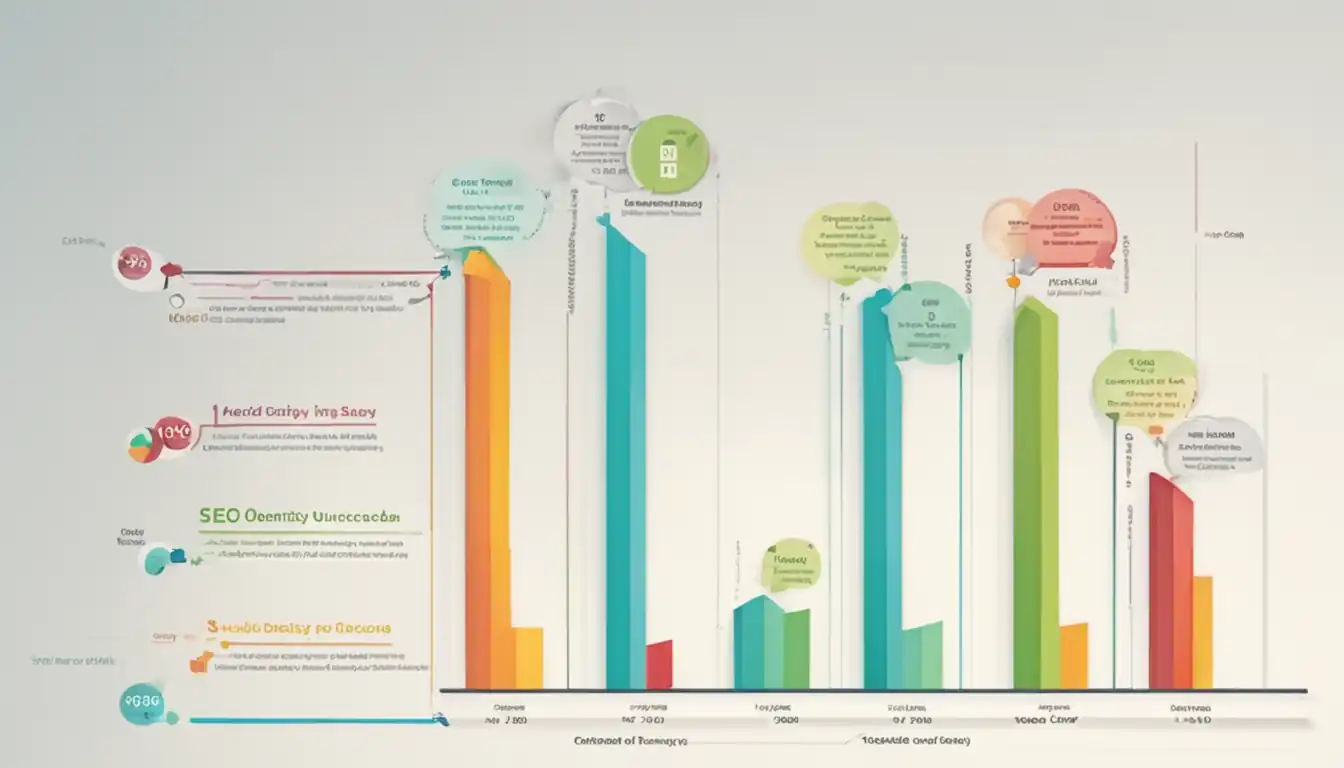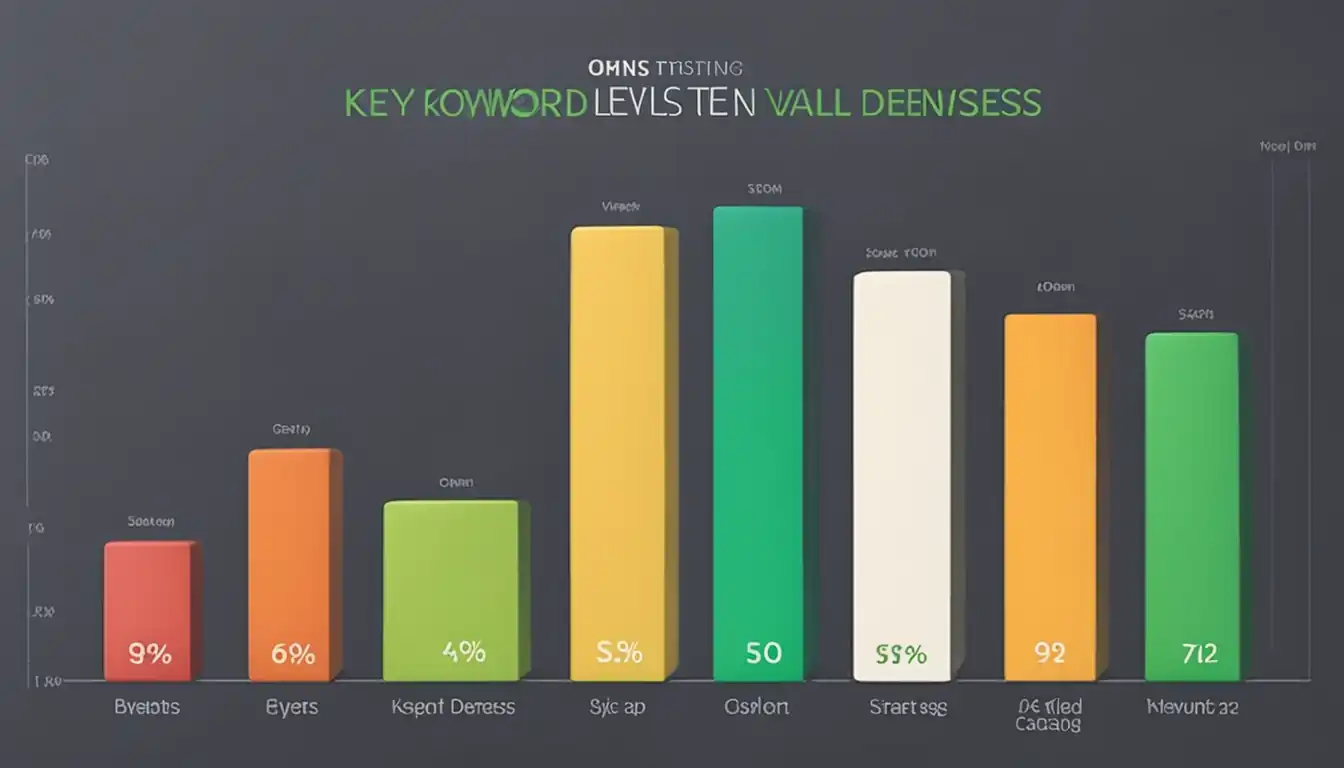Mastering Niche Content Keyword Density for SEO Success

In the vast world of SEO, mastering niche content keyword density is like finding a hidden treasure chest full of golden opportunities. Understanding the basics, tailoring keywords to fit your niche audience, and striking the perfect balance between optimization and natural writing are all crucial elements in achieving SEO success. So, grab your compass and let's embark on a journey to unlock the secrets of niche content keyword density!
Understanding Keyword Density Basics

What is Keyword Density?
Keyword density refers to the percentage of times a specific keyword or phrase appears on a webpage compared to the total number of words on that page. It is an important metric in SEO as search engines use it to determine the relevance of a page to a particular search query.
Why It Matters in SEO
Keyword density plays a crucial role in determining the ranking of a webpage in search engine results pages (SERPs). By strategically placing relevant keywords throughout your content, you can signal to search engines what your page is about and improve its chances of being found by users searching for that topic. However, it's important to maintain a balance and avoid keyword stuffing, as this can result in penalties from search engines.
The Role of Keywords in Niche Content

Keywords play a crucial role in driving organic traffic to your website, especially when it comes to niche content. By strategically incorporating relevant keywords into your content, you can improve your search engine rankings and attract more qualified leads.
Identifying Your Niche Audience
Before diving into keyword research, it's essential to have a clear understanding of your niche audience. Who are they? What are their interests and pain points? By identifying your target audience, you can tailor your content to meet their specific needs and preferences.
Tailoring Keywords to Fit Your Niche
Once you've identified your niche audience, it's time to conduct keyword research. Look for long-tail keywords that are specific to your niche and have lower competition. These keywords may have lower search volumes, but they are more likely to attract qualified leads who are actively searching for information related to your niche.
Incorporate these keywords naturally throughout your content, ensuring that they flow seamlessly within the context of your writing. Avoid keyword stuffing, as this can negatively impact the readability of your content and may result in penalties from search engines.
Remember that the goal is not just to rank for keywords but to provide valuable information that resonates with your niche audience. By mastering niche content keyword density, you can enhance the overall quality of your content while improving your SEO success.
Optimal Keyword Density for Niche Topics

In the world of SEO, finding the optimal keyword density for niche topics is crucial for success. While there is no one-size-fits-all answer, it is generally recommended to aim for a keyword density of around 1-2% for niche content. This means that your target keyword should make up about 1-2% of the total word count in your article.
Finding the Sweet Spot
To find the sweet spot for keyword density in your niche content, it is important to strike a balance between optimizing for search engines and creating valuable, engaging content for your readers. Overstuffing your content with keywords can result in a poor user experience and may even lead to penalties from search engines. On the other hand, not including enough keywords can make it difficult for search engines to understand what your content is about.
One effective strategy is to naturally incorporate your target keyword into your content while also using related keywords and synonyms to provide context and depth to your writing. By focusing on creating high-quality, informative content that resonates with your target audience, you can improve both your SEO rankings and user engagement.
Tools and Techniques to Measure Density
There are several tools and techniques available to help you measure keyword density in your niche content. Tools like SEMrush, Ahrefs, and Moz offer keyword density analysis features that can provide insights into how well you have optimized your content for specific keywords.
Additionally, manually calculating keyword density by dividing the number of times a keyword appears by the total word count can give you a quick snapshot of how well-balanced your content is. Remember that while keyword density is important, it should not be the sole focus of your SEO strategy. Creating valuable, relevant content should always be the top priority when aiming for SEO success.
Balancing Keyword Use with Natural Writing

In the realm of SEO, finding the perfect balance between incorporating keywords and maintaining natural writing is crucial for success. While it's essential to include relevant keywords in your content to improve search engine visibility, overusing them can lead to a negative user experience and potential penalties from search engines.
Integrating Keywords Smoothly into Text
When integrating keywords into your content, focus on creating high-quality, informative pieces that provide value to your audience. Avoid keyword stuffing, which involves excessively repeating keywords in an unnatural manner. Instead, seamlessly incorporate keywords into your writing by:
- Using synonyms and variations of your target keywords
- Incorporating long-tail keywords for more specific targeting
- Prioritizing readability and user experience over keyword density
By following these practices, you can enhance the relevance of your content without sacrificing its quality or readability.
Avoiding Over-Optimization Pitfalls
While it's important to optimize your content for search engines, be cautious of over-optimization pitfalls that can harm your SEO efforts. Some common mistakes to avoid include:
"Stuffing" keywords unnaturally throughout the text Neglecting other important SEO factors such as meta tags and backlinks Focusing solely on keyword density without considering overall content quality
Remember that search engines prioritize user experience and quality content when ranking websites. By striking a balance between keyword optimization and natural writing, you can achieve SEO success while providing valuable information to your audience.
Advanced Strategies for Niche Content Optimization
Using LSI Keywords Effectively
In the realm of niche content optimization, leveraging Latent Semantic Indexing (LSI) keywords is crucial for enhancing SEO success. LSI keywords are terms related to the main keyword that search engines use to understand the context and relevance of a piece of content. By incorporating LSI keywords naturally throughout your content, you can signal to search engines that your content is comprehensive and authoritative.
Key Points:
- Identify relevant LSI keywords using tools like Google Keyword Planner or LSIGraph.
- Integrate LSI keywords organically within your content to avoid keyword stuffing.
- Use LSI keywords in headings, subheadings, and throughout the body of your content for maximum impact.
The Impact of Semantic Search on Keyword Practices
Semantic search has revolutionized traditional keyword practices by focusing on the intent behind a user's query rather than exact keyword matches. This shift has made it essential for content creators to prioritize creating high-quality, contextually relevant content that aligns with user intent. By understanding the nuances of semantic search and crafting content that addresses user needs effectively, you can improve your website's visibility and ranking on search engine results pages.
Important Point:
- Optimize your content with long-tail keywords that reflect user intent and address specific queries.
- Create in-depth, informative content that answers common questions related to your niche.
- Stay updated on evolving semantic search trends to adapt your keyword strategies accordingly.
Conclusion
As you navigate through the intricate landscape of niche content keyword density, remember that quality always trumps quantity. By understanding the role of keywords in niche content, finding the optimal keyword density for your topics, and implementing advanced strategies like LSI keywords effectively, you can elevate your SEO game to new heights. So, go forth with confidence, armed with the knowledge and tools needed to conquer the realm of niche content optimization!